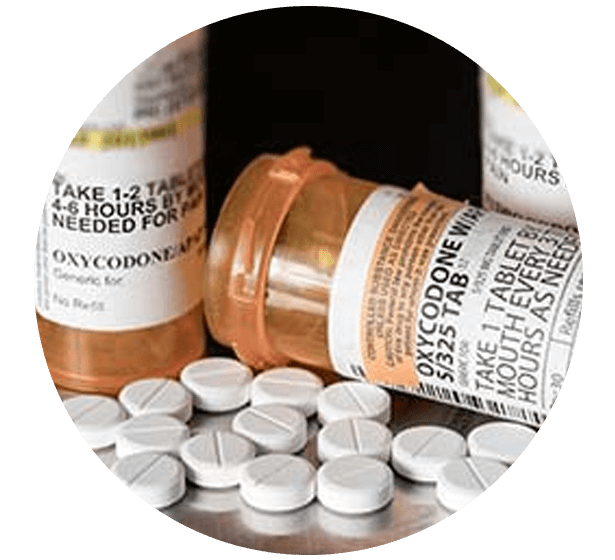The Complete Overview to Buying Oxycodone Online Responsibly
The Complete Overview to Buying Oxycodone Online Responsibly
Blog Article
Insight Into the Legitimate Makes Use Of Surrounding Oxycodone Intake
From providing relief to cancer people battling excruciating discomfort to assisting in post-surgical recuperation, the applications of oxycodone are impactful and significant. Recognizing the nuanced situations in which this medication is properly made use of sheds light on the elaborate balance between its risks and advantages, prompting a deeper exploration into the globe of pharmaceutical treatments in taking care of extreme discomfort.
Pain Monitoring in Cancer Clients
Discomfort administration in cancer cells patients is a vital aspect of their total treatment and treatment regimen. Individuals battling cancer cells commonly experience varying levels of discomfort, which can considerably influence their lifestyle. Efficient discomfort management not just minimizes physical pain however additionally deals with the psychological and emotional toll that persistent discomfort can take on people.
Cancer discomfort can originate from the condition itself, such as lump development continuing body organs or nerves, or as an adverse effects of treatments like radiation treatment, radiation, or surgical treatment - Buy Oxycodone online. It is necessary that doctor utilize a multidisciplinary technique to discomfort administration in cancer patients, tailoring interventions to address the particular type and resource of discomfort experienced by each individual
Treatment options may consist of pharmacological interventions like opioids, non-opioid anesthetics, and adjuvant drugs, in addition to non-pharmacological strategies such as physical treatment, acupuncture, and cognitive-behavioral treatment. The goal of discomfort management in cancer clients is not only to decrease pain degrees however additionally to boost overall functioning and quality of life during the course of their illness.
Post-Surgical Discomfort Alleviation
Adhering to procedures, effective administration of pain and promoting healing are essential elements of individual treatment. Post-surgical pain relief plays an essential duty in ensuring clients' convenience and facilitating their recovery process. Oxycodone, a powerful opioid analgesic, is commonly suggested for taking care of modest to severe pain following surgical procedure.
Post-operative discomfort can impede a client's capacity to relocate, take a breath deeply, and participate in crucial tasks for healing. Oxycodone assists alleviate this pain by binding to opioid receptors in the brain and spine cable, reducing the understanding of discomfort. By giving efficient discomfort relief, oxycodone enables patients to join physical therapy, improve their mobility, and stop complications connected with insufficient discomfort control.

Persistent Pain Administration
Effective monitoring of persistent pain is vital for enhancing patients' lifestyle and capability. Chronic discomfort, lasting for weeks to years, can considerably influence an individual's day-to-day tasks, mental health, and total well-being. Oxycodone, a powerful opioid pain medicine, is typically suggested to help manage chronic discomfort conditions such as joint inflammation, fibromyalgia, and reduced pain in the back when various other therapies have actually shown inadequate.
When utilized responsibly and under close clinical supervision, oxycodone can provide much-needed relief to patients experiencing from chronic pain. By targeting the main nervous system to alter the assumption of discomfort, oxycodone can help people regain wheelchair, participate in physical treatment, and take part in activities they appreciate. This, in turn, can cause enhanced mood, better rest, and enhanced general functionality.
It is important for doctor to very carefully assess each client's pain degree, medical history, and threat variables before recommending oxycodone for persistent discomfort monitoring. Regular monitoring and changes to the therapy plan are required to make sure the medicine's efficiency while decreasing the danger of dependancy or abuse.
Palliative Care Usage
When considering the broader spectrum of healthcare beyond chronic discomfort administration, the application of oxycodone in palliative care settings becomes a subject of substantial relevance. Palliative care goals to boost the top quality of life for individuals facing serious ailments by resolving their physical, emotional, and spiritual demands. Oxycodone, a powerful opioid analgesic, plays an essential function in palliative care by properly handling extreme pain that often comes with sophisticated diseases such as cancer, end-stage body organ failing, or innovative neurological conditions.
In palliative treatment, oxycodone is recommended carefully and under close supervision to reduce traumatic signs and symptoms, advertise comfort, and improve total wellness. The drug is tailored to each client's certain requirements, making sure optimum discomfort relief while minimizing prospective negative effects. Doctor in palliative care setups work very closely Home Page with people and their families to establish individualized treatment plans that focus on sign monitoring and psychological assistance.
Serious Injury Pain Control

Nonetheless, it is necessary to highlight the importance of making use of oxycodone responsibly and adhering purely to suggested dosages to minimize the threat of dependency, resistance, and potential unfavorable results. Health care companies have to closely check people getting oxycodone for extreme injury discomfort control to ensure its effectiveness suffering administration while minimizing the possibility of misuse or dependency. By integrating oxycodone into an extensive pain monitoring method customized to the individual needs of the client, medical care experts can optimize therapy results and facilitate a smoother healing procedure from extreme injuries.
Final Thought
In final thought, oxycodone acts as a crucial device in discomfort management for numerous clinical conditions such as cancer, post-surgical recovery, chronic pain, palliative care, and extreme injuries - Buy Oxycodone online. Its effectiveness in offering alleviation to clients experiencing my sources serious discomfort has actually been well-documented. When used properly and under clinical supervision, oxycodone can considerably boost the lifestyle for individuals struggling with debilitating discomfort
By giving reliable discomfort alleviation, oxycodone allows individuals to get involved in physical treatment, boost their flexibility, and stop problems associated with poor discomfort control.
Oxycodone, a potent opioid discomfort drug, is frequently suggested to assist take care of persistent pain conditions such as arthritis, fibromyalgia, and lower back pain when various other therapies have actually shown inadequate.
Oxycodone, a potent opioid analgesic, is reliable in supplying relief from severe pain by acting on the central anxious system to modify the perception of discomfort. Healthcare providers should closely keep an eye on people receiving oxycodone for extreme injury discomfort control to guarantee its efficiency in discomfort management while lessening the possibility of abuse or addiction.In verdict, oxycodone serves as a vital device in discomfort visit our website administration for various clinical conditions such as cancer cells, post-surgical recovery, persistent pain, palliative care, and extreme injuries.
Report this page